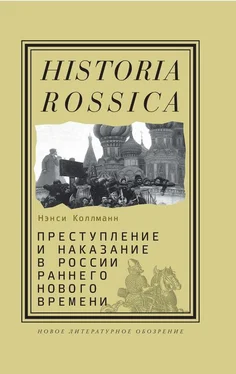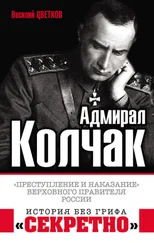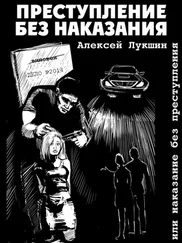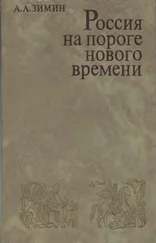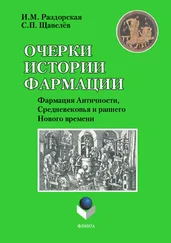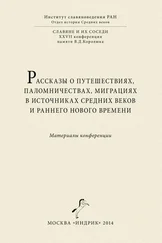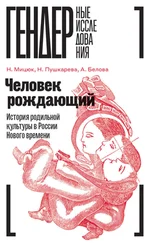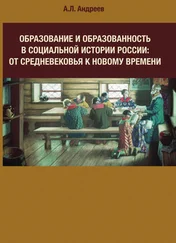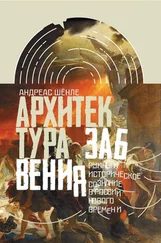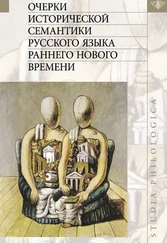Michels G. Rituals of Violence: Retaliatory Acts by Russian and Hungarian Rebels // Russian History. 2008. Vol. 35. № 3–4. Р. 383–394.
Michels G. Ruling Without Mercy: Seventeenth-Century Russian Bishops and Their Officials // Kritika: Explorations in Russian and Eurasian History. 2003. Vol. 4. Р. 515–542.
Michels G. The Solovki Uprising: Religion and Revolt in Northern Russia // Russian Review. 1992. Vol. 51. No. 1. Р. 1–15.
Michels G. The Violent Old Belief: An Examination of Religious Dissent on the Karelian Frontier // Russian History. 1992. Vol. 19. № 1–4. Р. 203–230.
Mikhailova Y., Prestel D.K. Cross Kissing: Keeping One’s Word in Twelfth-Century Rus’ // Slavic Review. 2011. Vol. 70. № 1. Р. 1–22.
Miller D.B. Saint Sergius of Radonezh, His Trinity Monastery, and the Formation of the Russian Identity. DeKalb, Ill.: Northern Illinois University Press, 2010.
Mironov B.N. Local Government in Russia in the First Half of the Nineteenth Century: Provincial Government and Estate Self Government // Jahrbücher für Geschichte Osteuropas. 1994. № 42. Р. 161–201.
Modernizing Muscovy: Reform and Social Change in Seventeenth Century Russia (Routledgecurzon Studies on the History of Russia and Eastern Europe. Book 1) / Eds. J. Kotilaine, M. Poe. London and New York: Routledge, 2004.
Moore S.F. Certainties Undone: Fifty Turbulent Years of Legal Anthropology, 1949–99 // Journal of the Royal Anthropological Institute. 2001. Vol. 7. № 1. Р. 95–116.
Moore S.F. Treating Law as Knowledge: Telling Colonial Officers What to Say to Africans about Running “Their Own” Native Courts // Law & Society Review. 1992. Vol. 26. № 1. Р. 11–46.
Mousnier R . Social Hierarchies, 1450 to the Present / Тrans. P. Evans. New York: Schocken Books, 1973.
Moutchnik A . Der “Strelitzen-Aufstand” von 1698 // Volksaufstände in Russland / Еd. Löwe. Р. 197–222.
Muchembled R., Birrell J. A History of Violence: From the End of the Middle Ages to the Present. Cambridge: Polity, 2012.
Muir E . Mad Blood Stirring: Vendetta and Factions in Friuli during the Renaissance. Baltimore and London: Johns Hopkins University Press, 1993.
Muir E. Ritual in Early Modern Europe. Cambridge University Press, 1997.
Naish C . Death Comes to the Maiden: Sex and Execution, 1431–1933. London and New York: Routledge, 1991.
Nexon D . State and Bureaucracy // Europe, 1450 to 1789 / Ed. J. Dewald. New York: Charles Scribner’s Sons, 2004. Vol. 5. P. 511–520.
Okenfuss M.J. The Discovery of Childhood in Russia: The Evidence of the Slavic Primer. Newtonville, Mass.: Oriental Research Partners, 1980.
Okenfuss M.J. The Rise and Fall of Latin Humanism in Early-Modern Russia: Pagan Authors, Ukrainians, and the Resiliency of Muscovy. Leiden and New York: E.J. Brill, 1995.
Orthodox Russia: Belief and Practice Under the Tsars / Eds. V.A. Kivelson, R.H. Greene. University Park, Pa.: Pennsylvania State University Press, 2003.
Ostrowski D.G. Muscovy and the Mongols: Cross-Cultural Influences on the Steppe Frontier, 1304–1589. Cambridge University Press, 1998.
Paas J.R. The German Political Broadsheet, 1600–1700. 10 vols. to date. Wiesbaden: Harrassowitz, 1985–.
Patronage in the Renaissance / Еds. G. Lytle, S. Orgel. Princeton University Press, 1981.
Pascal P. Avvakum et les débuts du Raskol. Paris: Centre D’ Études Russes Istina, 1938.
Pavlov A., Perrie M . Ivan the Terrible. London: Longman, 2003.
Peck L.L . Court Patronage and Government Policy: The Jacobean Dilemma // Patronage in the Renaissance / Eds. G. Lytle, and S. Orgel. Р. 27–46.
Penal Practice and Culture, 1500–1900: Punishing the English / Eds. S. Devereaux, P. Griffiths. London: Palgrave Macmillan, 2004.
Pentcheva B.V . Containers of Power: Eunuchs and Reliquaries in Byzantium // RES: Anthropology and Aesthetics. 2007. № 51. Р. 108–120.
Perrie M . Pretenders and Popular Monarchism in Early Modern Russia: The False Tsars of the Time of Troubles. Cambridge University Press, 1995.
Perrie M . The Image of Ivan the Terrible in Russian Folklore. Cambridge University Press, 1987.
Peters E.M. Prison before the Prison: The Ancient and Medieval Worlds // The Oxford History of the Prison: The Practice of Punishment in Western Society / Еds. N. Morris, J. Rothman. New York: Oxford Univ. Press, 1998. P. 3–43.
Peters E.M . Torture. New York: Basil Blackwell, 1985.
Peterson C . Peter the Great’s Administrative and Judicial Reforms: Swedish Antecedents and the Process of Reception. Stockholm: Nord. bokh, 1979.
Pihlajmaki H . Torture // Europe, 1450 to 1789 / Ed. J. Dewald. New York: Charles Scribner’s Sons, 2004. Vol. 6. P. 56–61.
Pipes R . Russia under the Old Regime. New York: Charles Scribner’s Sons, 1974. (Рус. пер.: Пайпс Р. Россия при старом режиме. М.: Захаров, 2004.)
Pipes R. Was There Private Property in Muscovite Russia? // Slavic Review. 1994. Vol. 53. № 2. Р. 524–530.
Plavsic B . Seventeenth-Century Chanceries and Their Staffs // Russian Officialdom: The Bureaucratization of Russian Society from the Seventeenth Century to the Twentieth Century / Еds. W.M. Pintner, D.К. Rowney. Chapel Hill, N.C.: University of North Carolina Press, 1980. Р. 19–45.
Poe M. “A People Born to Slavery”: Russia in Early Modern European Ethnography, 1476–1748. Ithaca, NY: Cornell University Press, 2000.
Poe M. The Central Government and Its Institutions // Cambridge History of Russia / Еd. M. Perrie. Vol. 1. Р. 435–463.
Poe M. The Truth about Muscovy // Kritika: Explorations in Russian and Eurasian History. 2002. Vol. 3. P. 473–486.
Poe M. What Did Russians Mean When They Called Themselves “Slaves of the Tsar”? // Slavic Review. 1998. Vol. 57. P. 585–608.
Politics and Society in Reformation Europe / Eds. E.I. Kouri, T. Scott. Basingstoke: Macmillan Press, 1987.
Potter C.J . Payment, Gift or Bribery? Exploring the Boundaries in Pre-Petrine Russia // Bribery and “Blat” in Russia: Negotiating Reciprocity from the Middle Ages to the 1990s / Eds. S. Lovell, A. Ledeneva, A. Rogachevskii. New York: St. Martin’s Press, 2000. Р. 20–34.
Pozdeeva I.V. The Activity of the Moscow Printing House in the First Half of the Seventeenth Century // Solanus (New series). 1992. № 6. Р. 27–55.
Prest W . Judicial Corruption in Early Modern England // Past and Present. 1991. № 133. Р. 67–95.
Radishchev A.N . A Journey from St. Petersburg to Moscow / Ed. R.P. Thaler; trans. L. Weiner. Cambridge, Mass.: Harvard University Press, 1966.
Raeff M . Origins of the Russian Intelligentsia: The Eighteenth-Century Nobility. New York: Harcourt, Brace & World, 1966.
Raeff M. The Well-Ordered Police State: Social and Institutional Change through Law in the Germanies and Russia, 1600–1800. New Haven: Yale University Press, 1983.
Raeff M. Understanding Imperial Russia: State and Society in the Old Regime / Тrans. А. Goldhammer. New York: Columbia University Press, 1984.
Rancour-Laferriere D. The Slave Soul of Russia: Moral Masochism and the Cult of Suffering. New York University Press, 1995.
Religion and Culture in Early Modern Russia and Ukraine / Eds. S.H. Baron, N.S. Kollmann. DeKalb, Ill.: Northern Illinois University Press, 1997.
Religious and Secular Sources in Late Tsarist Russia / Еd. C.E. Timberlake. Seattle and London: University of Washington Press, 1992.
Читать дальше
Конец ознакомительного отрывка
Купить книгу
